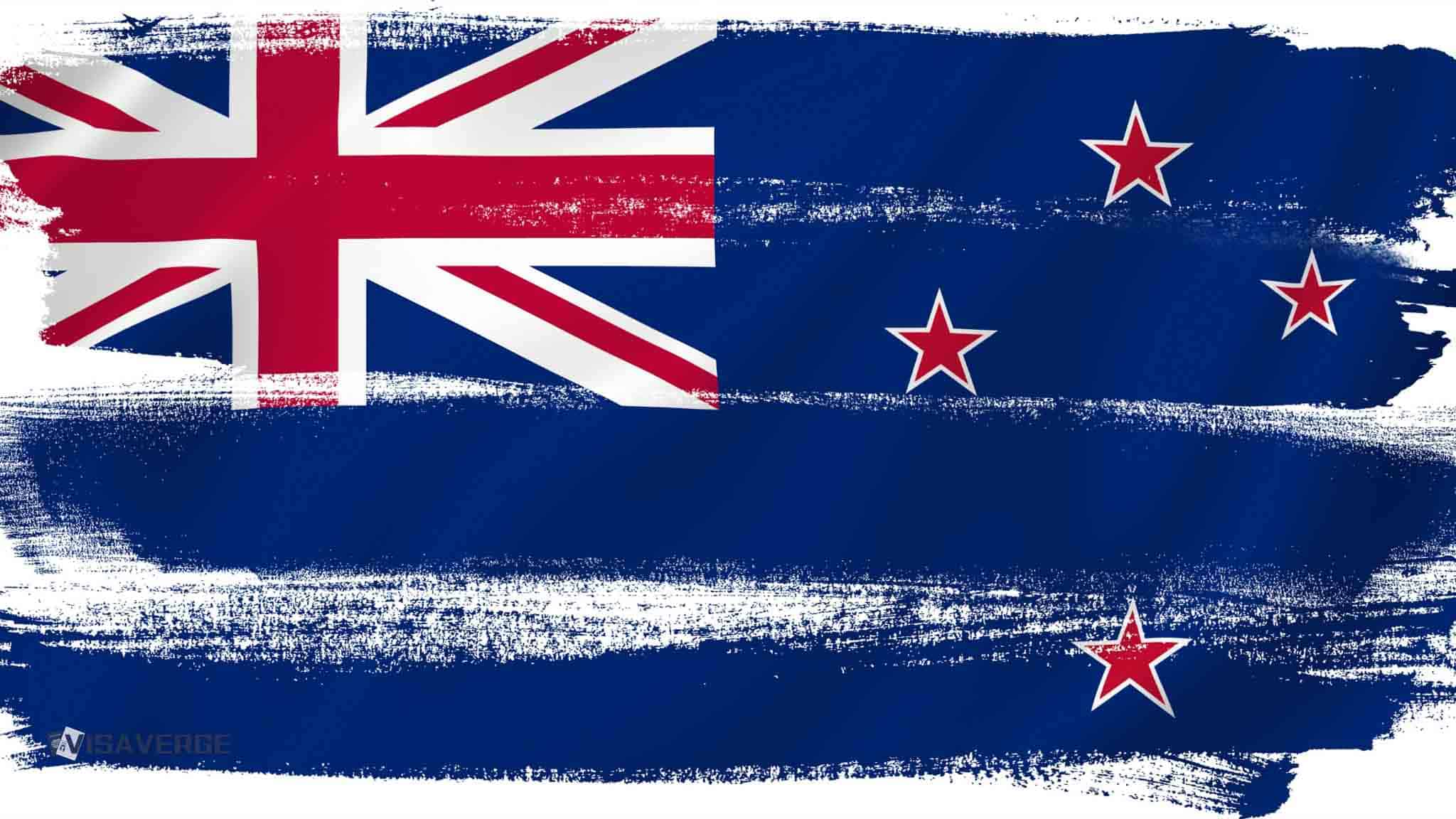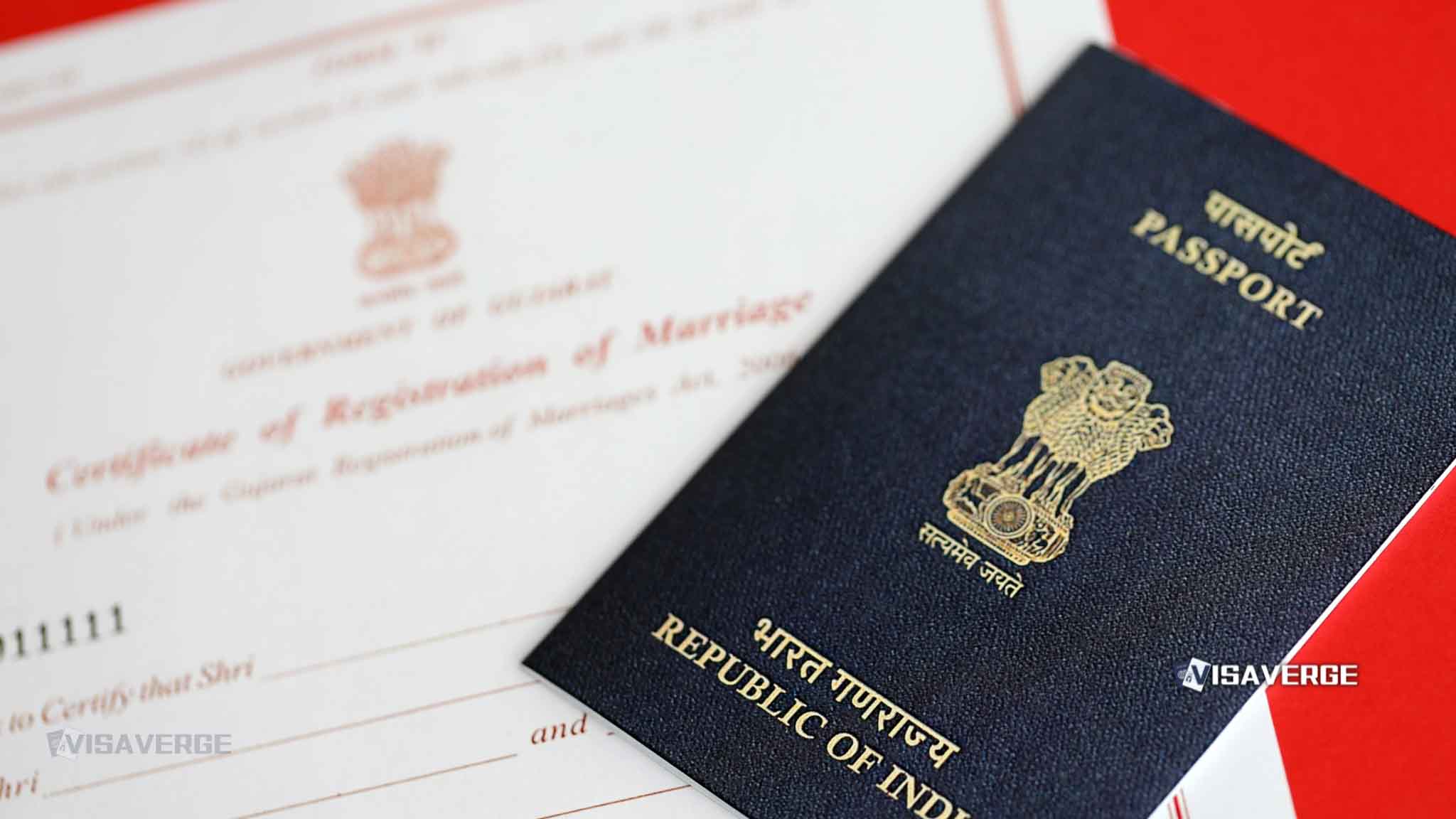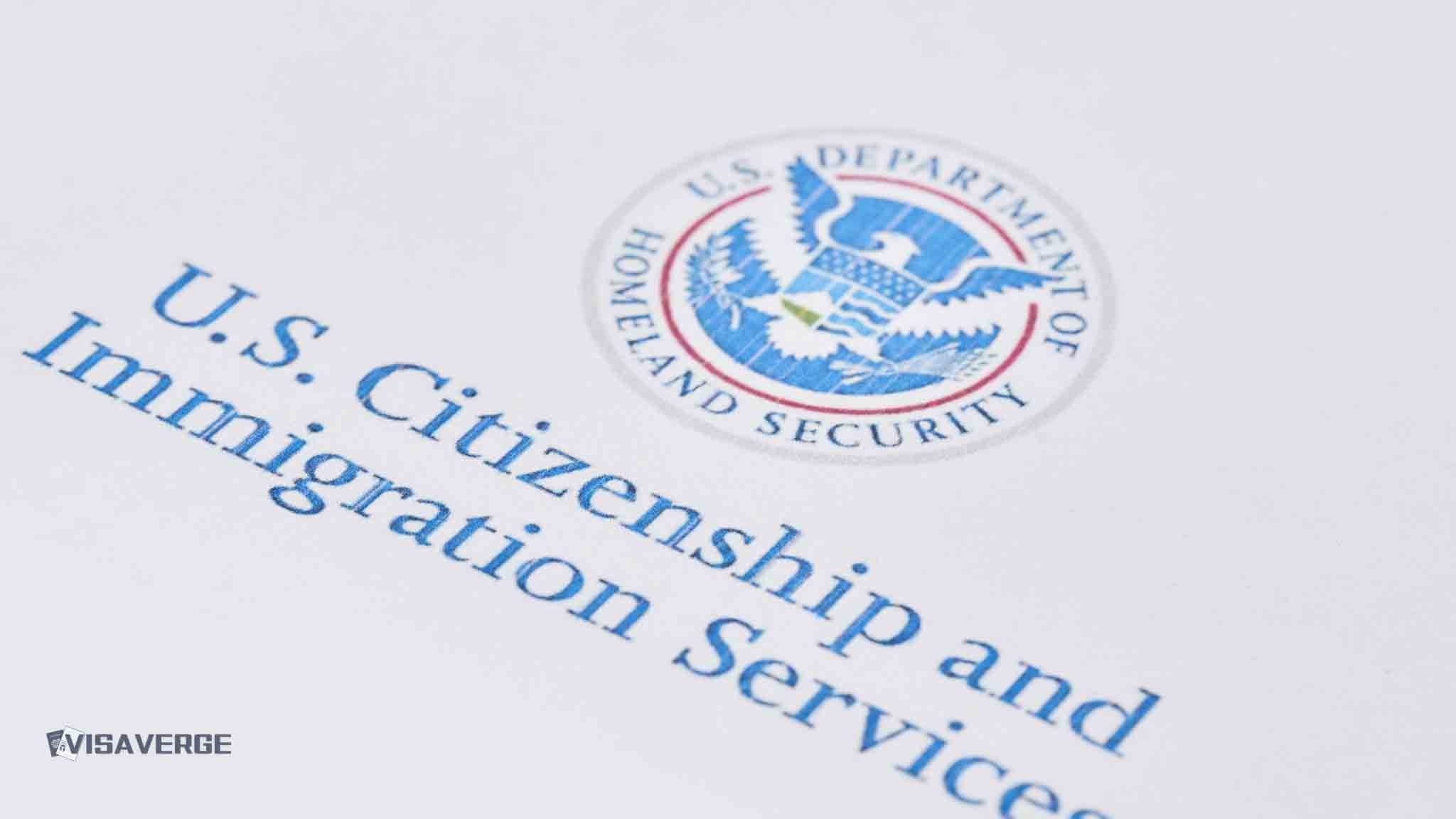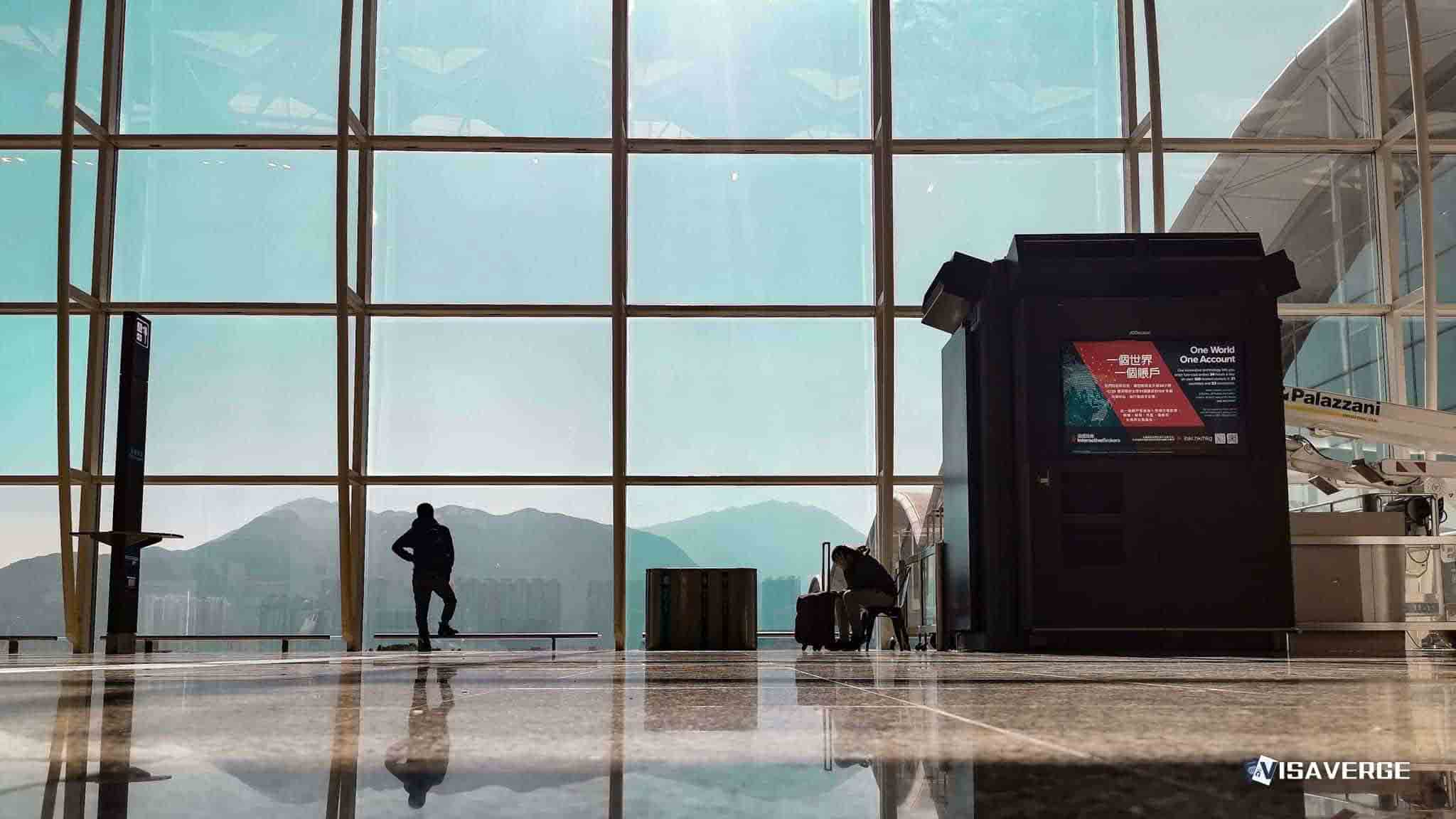Key Takeaways:
- The New Zealand Retirement Visa offers retirees scenic living while boosting the economy through specific financial contributions.
- Eligibility includes being over 66, NZD 60,000 annual income, and NZD 750,000 investment in New Zealand.
- Holders enjoy New Zealand’s lifestyle but face work restrictions; it doesn’t guarantee permanent residency.
The New Zealand 🇳🇿 Retirement Visa is a specialized pathway catering specifically to individuals seeking to spend their golden years in one of the world’s most picturesque and peaceful environments. This visa type not only facilitates retirees to enjoy the scenic beauty and lifestyle opportunities New Zealand 🇳🇿 has to offer but also infuses economic benefits into the country’s economy through specific financial contributions.
Eligibility Requirements
The Retirement Visa is available under a distinct set of eligibility criteria aimed at ensuring that applicants can support themselves in New Zealand 🇳🇿 without becoming a financial burden on the nation’s resources.
Age Restrictions: Applicants must be 66 years of age or older. This age criterion is set to align with the typical age of retirement, ensuring that the visa caters to genuine retirees.
Annual Income Thresholds: To qualify, applicants must demonstrate an annual income of at least NZD 60,000. This requirement underscores the expectation that retirees can sustainably finance their stay without requiring additional support.
Investment Criteria: A pivotal aspect of the Retirement Visa is the requisite investment in New Zealand 🇳🇿. Applicants are required to invest a minimum of NZD 750,000 in New Zealand over a period of two years. These investments are expected to be made in approved ventures that contribute to the country’s economic development, such as in bonds, equities, or eligible property.
Purpose and Benefits of the Visa
The overarching aim of the Retirement Visa is to attract individuals who not only wish to enjoy their retirement in a peaceful locale but who can also actively contribute to the New Zealand 🇳🇿 economy.
Lifestyle Benefits: New Zealand 🇳🇿 offers a clean, safe, and scenic environment conducive to a high quality of life. This visa allows retirees to partake in the myriad cultural, recreational, and social opportunities available in the country.
Economic Contributions: By meeting the required investment criteria, retirees directly contribute to the economic vibrancy of New Zealand 🇳🇿, thereby positively impacting various sectors such as housing, infrastructure, and local businesses.
Application Process
The application process for a Retirement Visa involves several stages aimed at rigorously vetting the applicant’s eligibility and financial capacity.
- Preparation of Required Documentation: Before submitting an application, potential applicants need to gather and prepare comprehensive documentation. This includes proof of age, detailed evidence of annual income, and a concrete plan for the requisite financial investment in New Zealand.
-
Submission of Application: Applications can be submitted either online or by paper through the official New Zealand Immigration website New Zealand Immigration. This step involves filling out necessary forms, such as the INZ 1246, along with all supporting documentation.
-
Assessment and Verification: Post-submission, the application undergoes a thorough assessment. This includes verification of financial details to ensure compliance with the income and investment criteria. Applicants might also need to undergo health and character assessments.
-
Decision and Notification: Once the application is assessed, a decision is rendered and communicated to the applicant. If successful, the applicant will receive a visa allowing residence in New Zealand 🇳🇿 under the set conditions.
Required Documents and Evidence
To substantiate an applicant’s eligibility, specific documents are required:
- Proof of Age: Certified copies of birth certificates or valid passports to confirm the applicant’s age.
- Financial Evidence: Documentation proving the stipulated annual income, such as pension statements or other reliable income certificates.
- Investment Plan: Formal proposals or confirmations for investments in New Zealand 🇳🇿, demonstrating compliance with the investment criteria.
Processing Times and Fees
The processing time for a New Zealand 🇳🇿 Retirement Visa can vary, typically ranging from several weeks to a few months, depending on the complexity of the application and the thoroughness of the documentation provided. Visa application fees are also substantial, reflecting the premium nature of this pathway.
Validity Period and Renewal Options
The Retirement Visa initially allows residence for a period of two years, during which the applicant must make the specified investments. Upon successful investment and continued compliance with income requirements, the visa may be renewed to allow further residence in New Zealand 🇳🇿.
Rights and Restrictions Associated with the Visa
Holders of a Retirement Visa are allowed to live in New Zealand 🇳🇿, however, they must be aware of certain restrictions:
- Work Limitations: The visa does not permit holders to engage in paid employment. The intent is to ensure that the visa serves its purpose as a retirement option.
- Residency Conditions: Continued compliance with income and investment criteria is mandatory to maintain residency.
Pathways to Permanent Residency
While the Retirement Visa does not directly lead to permanent residency, sustained residency and economic contribution over time can potentially open avenues for other visa categories that facilitate permanent settlement. However, this requires meeting additional criteria that focus on integrating as a permanent resident.
Comparison with Similar Visa Types
Compared to other visa categories like the Investor Visa, the Retirement Visa is distinct in its sole focus on retirees and their unique financial profile and lifestyle needs. Investors may have broader business engagement rights but face different financial thresholds and implications.
Common Misconceptions
Many assume that the Retirement Visa offers an immediate path to citizenship or permanent residency, which is not the case. It is essential to clarify these distinctions to manage expectations adequately.
Real-World Examples
Consider Gerald and Maria, a couple from the United States 🇺🇸, looking to spend their retirement amidst New Zealand’s natural beauty. Having sufficient savings and pensions meeting the income and investment criteria, they applied and successfully obtained a Retirement Visa, allowing them to settle in Queenstown.
Recent Changes or Updates
There have been recent adjustments to the financial thresholds, reflecting New Zealand’s 🇳🇿 economic priorities. It is crucial for applicants to stay informed via official resources to ensure their eligibility aligns with the most current guidelines.
Pros and Cons of the Retirement Visa
Pros:
– Access to a vibrant, peaceful lifestyle in New Zealand 🇳🇿.
– Opportunity to contribute economically through strategic investments.
Cons:
– Significant financial thresholds that may not be accessible to all retirees.
– Limitations on work and business activities in New Zealand 🇳🇿.
Additional Resources
For further detailed information, applicants are recommended to explore resources on official government websites and consult specialized immigration advisors to ensure a comprehensive understanding of the requirements and benefits associated with the Retirement Visa. VisaVerge.com’s analysis suggests keeping abreast of any legislative changes that might affect visa terms.
In conclusion, the New Zealand 🇳🇿 Retirement Visa represents a valuable opportunity for retirees seeking to enjoy their later years within one of the most attractive environments worldwide. However, understanding the strict requirements and ensuring all eligibility criteria are met is vital for a successful application and a smooth transition into life in New Zealand 🇳🇿.
Still Got Questions? Read Below to Know More:
Can I use the New Zealand Retirement Visa to bring a dependent family member with me
The New Zealand Retirement Visa, specifically the Temporary Retirement Visitor Visa, is designed for people who want to enjoy their retirement years in New Zealand. However, it primarily caters to individuals and does not automatically include provisions for bringing dependent family members. The criteria for this visa focus on the applicant’s financial capability and include demonstrating an annual income of NZD 60,000, owning NZD 750,000 to invest in New Zealand for at least two years, and having an extra NZD 500,000 to live on.
Regarding bringing family members, “the Temporary Retirement Visitor Visa does not allow you to include dependent children or a partner.” This limitation means if you want to bring a dependent family member, they must apply under another suitable visa category that fits their specific situation. For example, they could explore student visas, work visas, or visitor visas if eligible. These alternatives are subject to separate criteria and application processes.
For the most updated and precise information, you should check the official New Zealand Immigration website at New Zealand Immigration. They provide comprehensive details on visa options, requirements, and how to apply. If you need personalized advice, consider consulting an immigration advisor who is a licensed professional, as they could offer guidance based on your unique circumstances.
Are there any regions in New Zealand known for having a large retiree community
Yes, New Zealand has several regions that are popular among retirees due to their mild climates, beautiful scenery, and vibrant communities. One of the most renowned areas is the Bay of Plenty. This region offers picturesque beaches, a warm climate, and plenty of activities suitable for retirees. Towns like Tauranga and Mount Maunganui within this region are especially popular for their relaxed lifestyle and growing retiree communities.
Another attractive area is Nelson, located at the top of the South Island. It is known for having “the most sunshine hours in New Zealand.” This makes it perfect for those who enjoy outdoor activities and a laid-back lifestyle. Nelson also has a strong arts culture and a welcoming community, which can be ideal for retirees looking to stay socially active. The Marlborough region, famous for its stunning vineyards and scenery, also appeals to many retirees.
Lastly, Queenstown-Lakes is a scenic area that can be appealing to retirees who enjoy an active lifestyle. It offers breathtaking landscapes, diverse outdoor recreation opportunities, and a sense of tranquility that many retirees seek. For more detailed information on retiring in New Zealand and relevant immigration processes, you can visit the official Immigration New Zealand website at immigration.govt.nz. This site provides extensive resources on living and retiring in New Zealand, including visa information and community resources that can further assist prospective retirees.
What happens if I can’t meet the investment requirement after getting the Retirement Visa
If you find yourself unable to meet the investment requirement after obtaining a Retirement Visa, it is crucial to take immediate steps to address the situation. Each country has specific rules for Retirement Visas, and failing to meet these requirements can affect your residency status. Typically, the investment requirement involves maintaining a certain amount in a bank account or proving a steady income source.
- Contact the Immigration Office: The first step you should take is to contact the immigration authorities of the country where you have your Retirement Visa. They can provide guidance on any grace periods or alternative compliance options. It is essential to communicate any changes in your financial situation as soon as possible to avoid penalties or revocation of your visa.
-
Explore Solutions: In some cases, there might be alternative ways to meet the requirements temporarily. You might need to provide additional documentation to prove other forms of financial stability or commitments to meet the investment requirement. This might involve showing evidence of a pension, property assets, or other income streams.
“Each country may have unique processes to safeguard your status. For precise guidance, consult the official immigration resources. Visit the government’s immigration website of the respective country to learn the specific steps involved.” For instance, expatriates in Thailand can find detailed information on their retirement visa requirements at the Thai Immigration Bureau.
By being proactive and addressing the issue head-on, you can ensure that you maintain your legal status in the country while seeking other means to meet your financial requirements for the retirement visa. Keep in touch with official sources and consider getting legal advice if your situation becomes more complicated.
How does healthcare work for retirees on a New Zealand Retirement Visa
Retirees moving to New Zealand on a Retirement Visa typically want to know how healthcare will work for them in the country. In New Zealand, most publicly funded healthcare is managed through the district health boards and is generally available to its residents. However, “non-residents, including those on a Temporary Retirement Visitor visa,” are not entitled to publicly funded health services in New Zealand. This means retirees on this specific visa need to plan for private healthcare.
To ensure health needs are covered, here are the primary considerations for retirees on a New Zealand Retirement Visa:
- Private Health Insurance: It is highly recommended for retirees on a Temporary Retirement Visitor visa to arrange private health insurance that covers their needs while living in New Zealand. This can help manage costs if you need to access medical treatment. Various insurance providers offer plans that cater specifically to expatriates and retirees.
-
Access to Private Healthcare Facilities: With insurance, you can access a wide range of private healthcare facilities throughout New Zealand. These facilities often have shorter waiting times and may offer a more comprehensive range of services than public hospitals.
-
Planning Visits Abroad: For non-emergency healthcare needs, some retirees choose to travel to their home country or other countries where they have easier access to medical services, which is a consideration if planning long stays.
For more detailed information, you can visit the official New Zealand Immigration website at Immigration New Zealand. This page provides comprehensive information about various visas and their conditions, including the Temporary Retirement Visitor visa conditions and healthcare entitlements. Remember to consider whether provisions need to be made for potential medical costs and ensure appropriate health coverage before relocating.
What are the tax implications for retirees moving to New Zealand on a Retirement Visa
Moving to New Zealand on a Retirement Visa carries specific tax implications. If you plan to settle in New Zealand as a retiree, understanding these tax obligations is essential. The primary concern is determining your tax residency status, as it influences your income tax liabilities. Generally, you are considered a New Zealand tax resident if you are present in the country for more than 183 days in any 12-month period or if you have a “permanent place of abode” in New Zealand. As a tax resident, your worldwide income will be subject to New Zealand tax.
For tax obligations, retirees should consider these key points:
- Income Tax: New Zealand does not have a separate tax rate for retirees. All residents are taxed on their worldwide income at progressive rates. Visit the Inland Revenue Department (IRD) website for current tax rates: IRD Tax Rates.
-
Pension Income: Foreign pension income may be taxable in New Zealand. Understanding double tax agreements is crucial to avoid being taxed twice: IRD Double Tax Agreements.
-
Non-Resident Taxes: If you are not a tax resident, only your New Zealand-sourced income is taxable, which is a significant consideration for those planning to split their time between countries.
In addition to income taxes, retirees should be aware of the absence of some taxes which might be favorable. For instance, New Zealand does not impose a capital gains tax on most assets, nor does it have an inheritance tax. Planning your financial affairs with this in mind can offer benefits. Also, make sure to consult with a tax advisor who understands New Zealand’s tax laws to optimize your tax situation effectively. For further detailed planning, visit the official New Zealand Immigration site: New Zealand Immigration and consult their sections specific to senior residency and financial requirements.
Learn today
-
Retirement Visa: A visa type specifically for retirees, allowing them to live in a country under specific financial and age criteria.
-
Eligibility Criteria: Specific requirements that applicants must meet to qualify for a particular visa type, ensuring they support themselves financially.
-
Investment Criteria: Financial requirements for visa applicants to invest a specific amount in approved ventures within the host country to stimulate the economy.
-
Application Process: The steps and procedures involved in submitting and gaining approval for a visa, including documentation and official forms.
-
Permanent Residency: The status allowing a person to live in a country indefinitely with certain rights and obligations, distinct from temporary visas.















